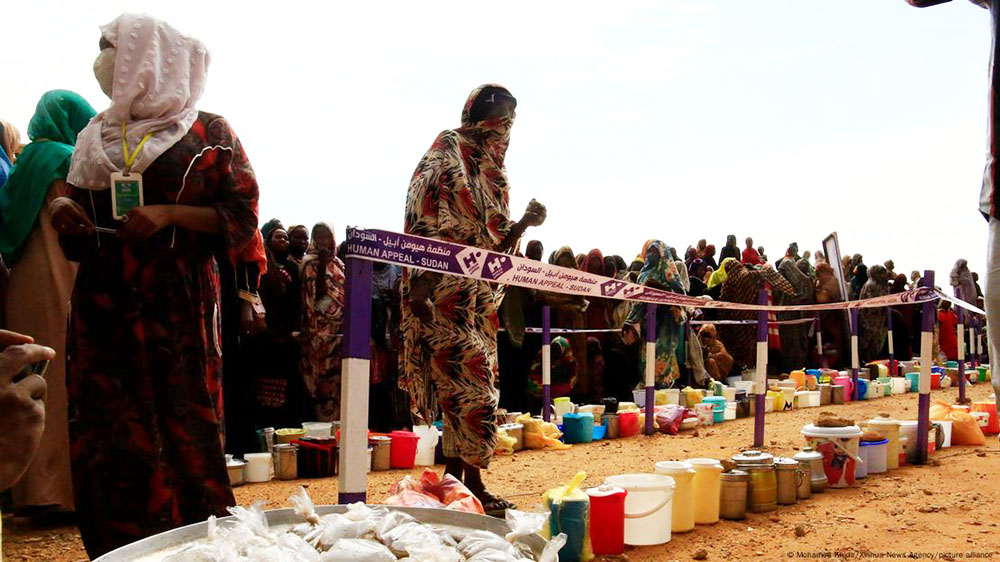
Rape: The Harshest Suffering of Sudanese Women While Fleeing the Horrors of War
Source: Migrant News
Dozens of reports have documented cases of sexual violence against Sudanese women since the outbreak of the war. Whether in their homeland or during their refuge in neighboring countries, nothing protects them from rape. But do these reports truly reflect the severity of their plight?
The Sudanese governments Unit for Combating Violence Against Women previously estimated that the reported cases of rape represent only about 2% of the actual incidents. This staggering statistic highlights the dire circumstances facing girls and women in a nation where civil war continues to shed blood and wreak havoc on its citizens.
Among the alarming figures released by the Strategic Initiative for Women in the Horn of Africa (SIHA), more than 90% of raped Sudanese women are victims of gang rape, with many also subjected to abduction.
Most of the documented incidents were reportedly perpetrated by members of the Rapid Support Forces and other armed groups in Darfur, who tortured, trafficked, and raped Sudanese women at various locations within the country.
A Refugee Girl Raped and Pregnant: Where Can She Go?
"Nahla," a 13-year-old Sudanese girl, is a stark representation of the suffering of Sudanese women both inside and outside their war-torn homeland. She was raped in her own country by attackers who showed no mercy to her desperate cries, violating her still-developing body.
Her ordeal did not end with this brutal sexual assault; it was followed by the tragedy of pregnancy, which she could not prevent due to the lack of medical services.
As her due date approaches, Nahla lives in constant fear and insecurity. Now a refugee with her mother in Egypt, they fled after enduring torture and rape, finding no safety in their homeland ravaged by civil war. Both still require support, assistance, and guidance—something that official bodies in Sudan, with the help of international organizations, strive to provide.
Salima Ishaq, Director of the Unit for Combating Violence Against Women (a governmental body), works tirelessly to extend help to Sudanese women in need both inside and outside the country. In statements to Migrant News, she noted that "more than 3 million women have left Sudan due to the war," emphasizing that "their situations are often harsher than those of internally displaced persons." Some manage to seek help, and efforts are made to reach them through coordination with humanitarian organizations, despite numerous challenges.
Regarding refugees, Ishaq stated, "While international funding exists for their support, they often lack access to even basic services due to their legal status. They avoid public hospitals in host countries for fear of deportation and instead rely on family support to afford private healthcare. Without this, they remain vulnerable to disease, poor health, and homelessness."
She added, "In Chad, for instance, Sudanese women report facing abuse, harassment, and exploitation everywhere—even within refugee camps. In Egypt, cases like Nahla’s highlight the challenges undocumented women face, such as being unable to give birth in a hospital. They must depend on Sudanese doctors working with international organizations."
"Getting a Sanitary Pad Made Me a Victim of Gang Rape"
Khadija endured a harrowing journey after her family’s home was destroyed in heavy shelling months ago, leaving her as the sole survivor. Without much thought, she fled with neighbors, not knowing their destination.
After a three-day journey, she found herself a refugee in Libya without identification, money, or a phone to seek help. Homeless in an unfamiliar land, Khadija was eventually imprisoned. Remarkably, she now views the prison as less harsh than the streets of Misrata, dominated by militias.
She narrowly escaped numerous harassment attempts by screaming in dark streets. But her refuge ended after four months when she went out to buy sanitary pads. "Four Libyan men intercepted me on my way back, verbally abused me, and assaulted me. They beat me, gagged my mouth, and dragged me to an abandoned building where they raped me one by one. My condition didn’t stop them—they were like beasts."
Khadija barely made it back to the house where she was staying. Ashamed, she hid for two days, prompting her host to check on her. "When she discovered I’d been raped, she insisted on taking me to the hospital. But without documentation, I couldn’t receive treatment despite my injuries."
Ishaq stressed the urgent need to address women’s sexual health as a priority equal to food and water. She noted that international organizations provide hygiene supplies, medicine, and healthcare to women but face obstacles in conflict zones and refugee areas.
No Safety for Sudanese Women Anywhere
Rape cases in Sudan have surged since the war began. Ishaq recounted a mass assault in a Sudanese village where gunmen raped all the nurses at a health center. "Women in conflict areas know they are targets and try to stay in safer homes or regions," she explained.
Even women providing essential services, such as healthcare workers or police officers, find themselves vulnerable. "While the plight of internally displaced persons is catastrophic, Sudanese refugees abroad endure even worse conditions—they are forgotten, abandoned by the world."

